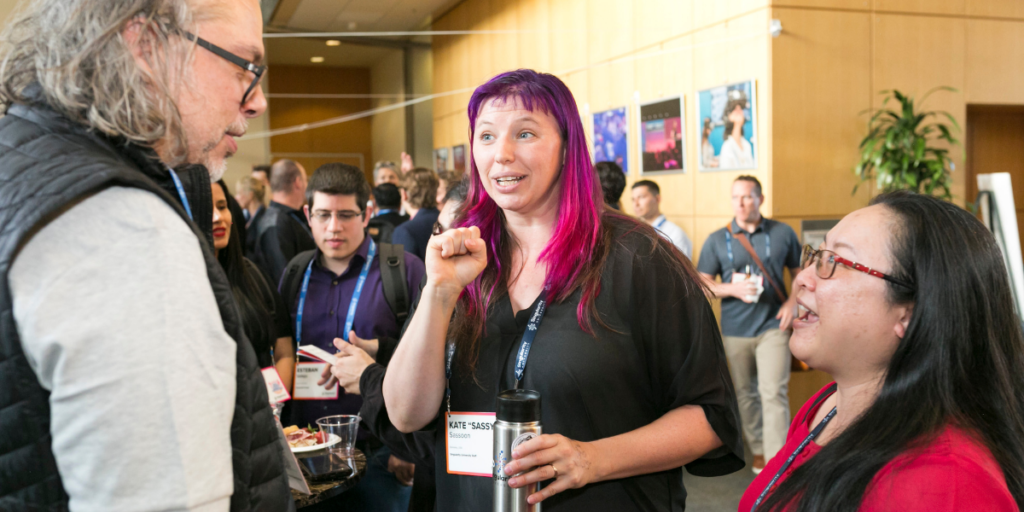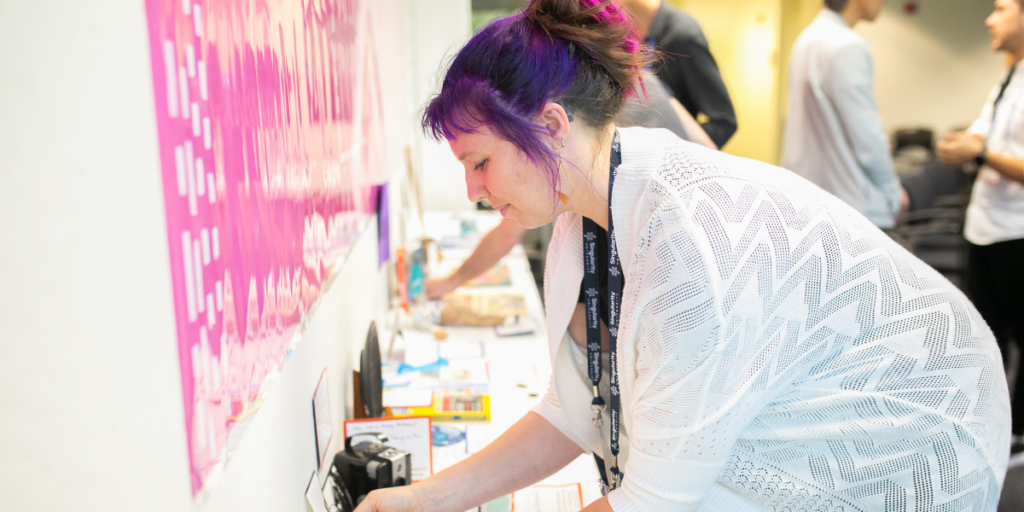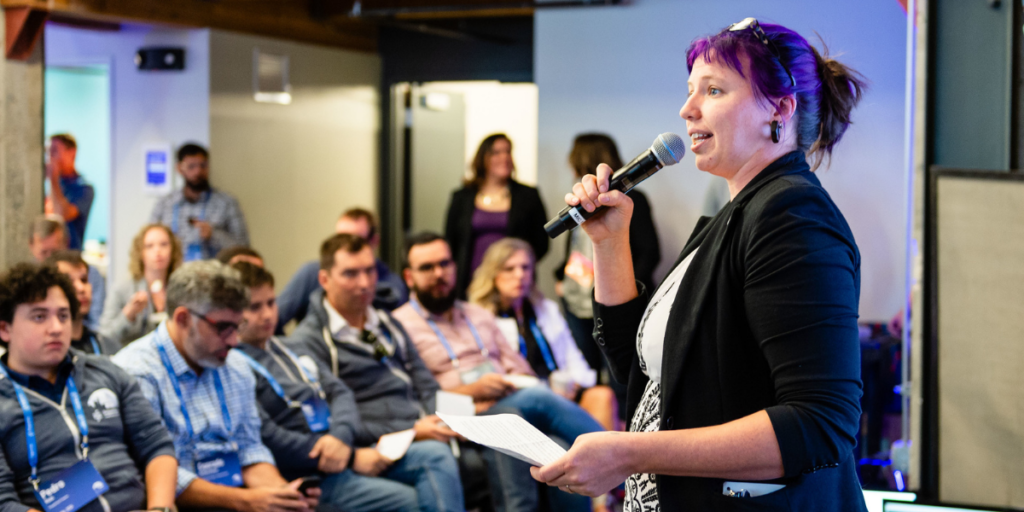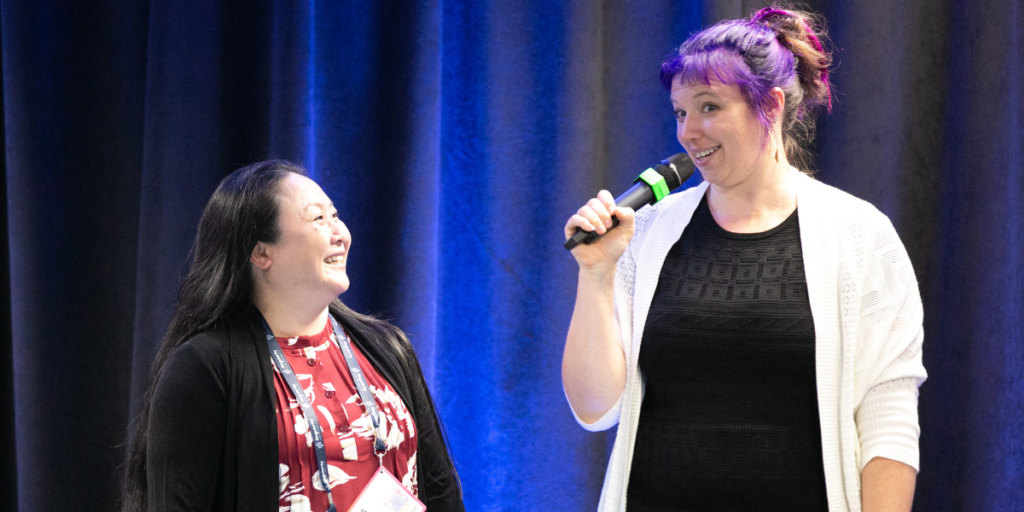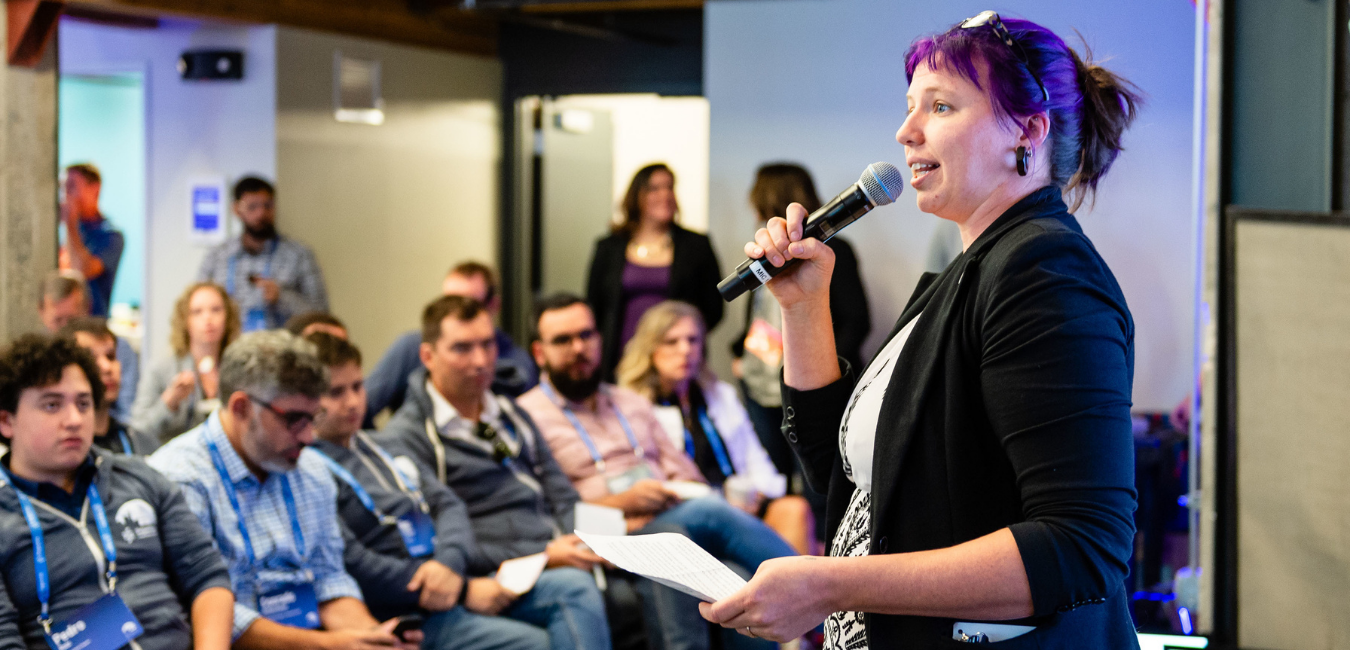
Kate ‘Sassy’ Sassoon
Bay Area, California, U.S. Human System Engineer. Facilitator and unpacker of power. Lifelong co-op advocate. Zebras Unite founding member.
A Zebra is…
…someone who attempts to do meaningful work to build a better world both within and against the business-as-usual economic structure. There’s the myth of the “unicorn” in the VC world – the company that can return 10x to its investors, and which is the only value proposition worth chasing. As Zebras, we actively critique that myth – not in a reactionary way rather in a parallel-building-kind-of-way. We believe we don’t need to buy into the extractive paradigm in order to build an amazing future.
Species Suicide: The Ultimate Cost of Extractive Capitalism
The status quo (in the west) only works for those who are white, hetero-sexual, cis-gender, ablebodied, economically solvent male.
The current system actively disincentivises triple bottom line businesses – those committed to maximizing People, Planet and Profit. For example, LLCs are not allowed to try and maximize for long-term sustainability, they are forced to maximize for profits, both by law and by the norms of our financial system. That kind of extractive short term thinking is already having massive impacts on our global climate, and our ability to have a future that supports human life. And, speaking as a trained ecologist, that’s literal species suicide – so how about we say NO!?
A Ceiling and a Floor to How Much Anyone Can Accumulate
In my ideal future, there would be a ceiling and a floor to human wealth accumulation:
- A ceiling to ensure that no person can make more than X% or Y-times what the poorest person makes – that ceiling could be relative or absolute, but there would be a commonly agreed upon way to limit what is essentially anti-social resource hoarding.
- A floor to ensure that there is a minimum financial threshold that everyone is empowered to live above. Only then can society access the full brilliance and energy of all its participants, and become greater than the sum of its parts.
Once you have a ceiling and a floor, you can be more creative and equitable within that space. There can be people who make more and people who make less – but the wealth-generated-power difference between them will never be so out of scope that you can’t keep the whole system going.
Co-owning the Financial Infrastructure
There needs to be more co-ownership of our financial infrastructure. If these vital structures were co-owned by people of diverse backgrounds, experiences, and perspectives, the financial instruments that are created would be more reflective of the needs, aspirations, goals and desires of the people who use that capital to create new products and services.
We need this co-ownership option to be more pervasive within the “financial plumbing” for startup and small business funding. For example, look at the recent article about how the federal SBA was directed to fund more cooperatives, but is failing because it’s internal norms and external partners struggle to understand how to fund ventures that are collectively owned. We need to ensure that the concept and structures for co-owning companies and property is intelligible to the people and structures that are holding the financial keys to the kingdom – so that resources can flow equitably through our society.
Redistribution of Power for More Equitable Communities
The people who are going to be impacted by change need to be the ones driving the response to that change. For example, if there is a wealth-building project aimed at lifting up a community, it needs to be owned and run by that community. Stakeholders and shareholders should be tightly interrelated, if not identical, if you’re going to align incentives and drive equitable and just outcomes.
Within the current system, we have wealthy communities and communities that have been historically and systemically marginalized and disempowered – who have been denied access to the capital required to build lasting wealth. We need to amplify and co-create ways for those communities to create capital flows from where it currently exists to where it is needed (and deserved). And it is those communities that have been marginalized who need to be in the driving seat of creating those capital flows.
In order to make this happen at a societal level, we’ll need everyone’s full participation – and that means a diversity of viewpoints and experiences. But true participation is about relative power. So if you come in with more power, you will need to lessen your power in order for everyone to have the same “share of the air”. Only then will we reap the benefits of collaboration across differences and actually become more together than we are apart.
A Culture of Safe Failure and Unlearning
We need to unpack these differences in power through authenticity, humility and unlearning. We need to create intentional space to unlearn the default culture. Think about it: every day, we breathe in sexism, patriarchy, white supremacy, ableism, etc. It is so ingrained in how we perceive the world that we need spaces to step back, notice and then turn to each other to figure out how to do the exact opposite. We need space to create different air to breathe.
In order to get there, we are going to need our culture to be one that welcomes vulnerability. In the startup world there’s the saying that entrepreneurs all believe that “it’s safe to fail.” Sure, in theory – but I have very rarely seen it actually operationalized. VC Funders are quick to pull resources when you report slightly lower numbers in expected quarterly earnings – how exactly is that safe? What behavior does that incentivise? It’s certainly not vulnerability.
We need to create safe spaces for the messiness of failure and unlearning. It needs to be ok to f*ck up and move on, to be accountable in an agreed upon way that centers progress and learning. All that is absolutely doable. Scary sure – but doable!
One reason we haven’t made much progress on this front is that talking about these structural dynamics is taboo. Because if you actually dig into the messy work of unpacking them, you have to acknowledge the harms (and unearned privileges) imparted by these structures. And those structures will resist that unpacking because humans will always find it scary and threatening to unpack a status quo has served (some of them) them well over the centuries.
But what is a little fear and messiness in trade for a more just and equitable future? Sure it’s scary – but it’s way less scary than the alternative.
Sassy’s Contribution
I love hard conversations. I started my company because I realized that I actually appreciate long, contentious board meetings – and that’s definitely not everyone’s truth. I reasoned that since I actually find great joy in facilitating these complex high stakes conversations, I should offer that as a service to the world.
I bring my high energy, interdisciplinary toolbox, and tenacious optimism to groups that are stuck, entrenched and unable to move past these legitimately hard challenges.
Helping folks navigate difficult conversations gives me life!
I have been part of different kinds of co-owned enterprises my entire life and have directly experienced the transformative power of co-ownership and co-operatives. There are a lot of structures that business-as-usual culture organizations are not aware of: like how to weave your “anti-oppression policy” into everything you do (rather than slapping a rainbow logo on your website once a year), or how to cultivate employee buy-in to company operations as a byproduct of (and not in spite of) how you run your everyday meetings.
There are so many tools from the world of cooperative operations and governance that other types of organizations just aren’t aware of. I bring that whole toolbox – plus several others – to the facilitation, training and organizational design I offer through my business, Sassy Facilitation, where I specialize in supporting the “human systems engineering” for organizations that want to come together to do good in the world.
How Can We Support You?
My ultimate life mission is “Less time wasted on bad communication is more time liberated for building world-changing collaborations.” I would love to collaborate with others – through the Zebra’s Unite Co-op, and any other person, institution, or movement that is aligned with leaving the world better than we found it – on achieving that mission.
If there is a person or project in the Zebra universe that needs my particular skill set, reach out and let’s collaborate on building that better future!
One Question for the Community
What is your greatest communication pain point?
What’s the one part in your (internal or external) communication that you and your team are afraid to go? Where’s the place where your voice stops in your throat? Ask yourselves what is the cost of failing to face that fear – and what more you could do if you weren’t paying it.
Shoutout
The Sustainable Economy Law Center – they’re an amazing group of lawyers, accountants and policy makers who are building the infrastructure for the kinds of organizations that we just talked about. They are doing amazing activist work on that legal foundation level.

Kate ‘Sassy’ Sassoon
San Francisco Bay Area, California, U.S.A.
Human System Engineer. Facilitator and unpacker of power. Lifelong co-op advocate.
